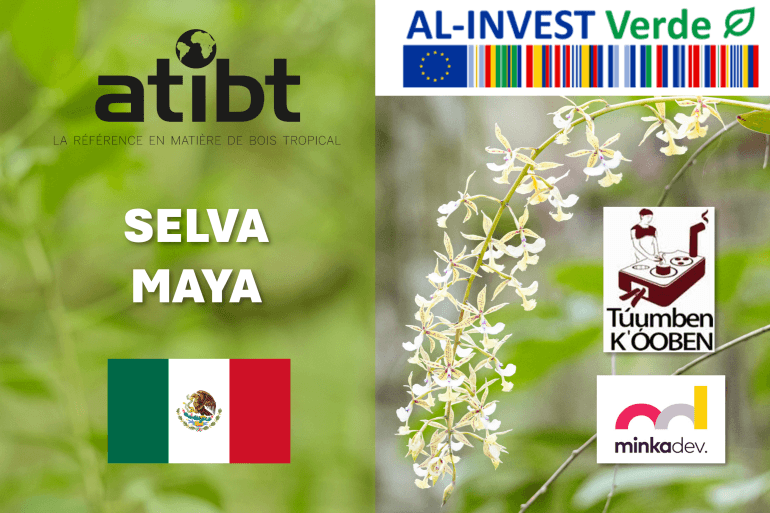

21.02.2025
As part of the European Union's AL-INVEST Verde programme, Paul Cuveillier of ATIBT recently led a mission to Mexico to monitor the progress of the ‘Zero Deforestation Timber’ project (‘Madera Cero Deforestación’). This project aims to strengthen the traceability of tropical timber and promote sustainable forestry, in accordance with the European Union Deforestation Regulation (EUDR).

An ambitious project for the community forests of Quintana Roo and Campeche
The initiative has several objectives:
1- To create a digital traceability tool to track timber from its origin to its sale.
2- Promote innovation in the production practices of small and medium-sized enterprises in the wood sector in Quintana Roo and Campeche, adapting them to regulatory requirements and the expectations of European and international markets.
3- Ensure the social, economic and sustainable development of the forest communities of Campeche and Quintana Roo.
During this mission, an informative session was organised, bringing together many ‘ejidatarios’ from different forest communities, or ‘ejidos*’. The ejido PETCACAB, present at the CIB in Nantes, participated in the discussions.
 Informative session in Quintana roo
Informative session in Quintana roo
With the support of the Secretariat of Economic Development (SEDE, Ministry of Economic Development) of Quintana Roo, this meeting provided an opportunity to present the ‘Zero Deforestation Timber’ project in detail and explain the implications of the European Union Deforestation Regulation (EUDR), a key issue for local players in the timber sector.
The key element of this session was the introduction of the digital traceability tool developed by the company MinkaDev, designed to strengthen transparency and access to the European market.
Beyond the presentation of the project, the discussions highlighted the major challenges faced by ejidatarios, particularly in terms of regulation, certification and export conditions. These constructive discussions have identified areas for improvement to facilitate the integration of local communities into a more sustainable and fairer timber trade.
These meetings have led to the establishment of solid relationships with stakeholders and the mobilisation of several ejidos in favour of the traceability pilot project.
Despite the challenges encountered, some ejidos, such as PETCACAB (https://fr.fsc.org/fr-fr/newsfeed/selva-maya-la-preservation-des-forets-grace-a-une-alliance-dacteurs-engages) and Noh Bec, are committed to implementing forest management practices that comply with FSC requirements and standards.
 Noh bec ejido tree nursery
Noh bec ejido tree nursery

Noh bec ejido wood park
The digitisation of the traceability system and the promotion of local forest products are the next steps in the project for ATIBT and its partners.
This ‘Zero Deforestation Timber’ project is fully in line with ATIBT's approach to promoting a sustainable and responsible tropical timber industry.
For more information, and questions, you can contact paul.cuveillier@atibt.org
*In Mexico, an ejido refers to a collective property allocated to a group of people to carry out agricultural or forestry work.